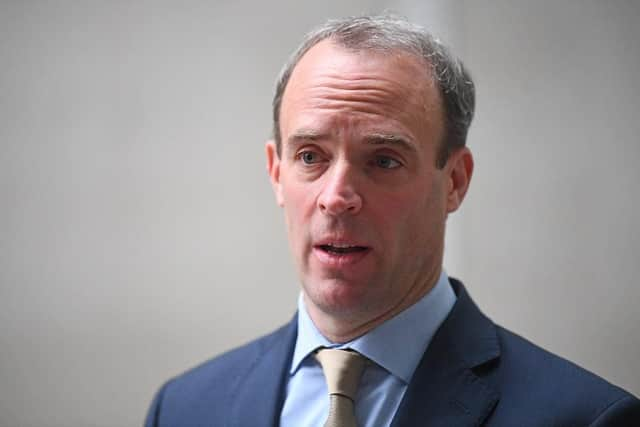'Billions impacted' by UK Government overseas aid cuts as academic criticises 'total lack of honesty'
Tomorrow’s Cities, a research hub based at the University of Edinburgh, specialises in disaster risk management across the world, helping governments learn and reduce the risk to urban residents posed by natural disasters.
The project had received funding of nearly £5 million as part of UK Government overseas aid funding for 2021/22, but following the decision to cut foreign aid their budget has been slashed to £1.4m, putting jobs at risk.
Advertisement
Hide AdAdvertisement
Hide AdOverall, the project received funding of around £20m for its five year life-span.


Professor John McCloskey, the co-director of the hub, blasted the decision and said the research, which could have helped billions, would now be hampered by the funding cut.
"We have to lose 61 jobs and most of those are young scientists,” he said.
"I am utterly shocked by the total lack of honesty of the people who signed the contracts or worse still, we signed the contracts on behalf of the UK Government, which has always been a gold standard in terms of honesty and dependableness.
"It [£3m] wouldn’t keep [former prime minister] David Cameron in consultancy for a wet weekend and that’s the commitment that they have to honesty."
The intervention comes after the UK Government decided to cut Official Development Assistance funding from 0.7 to 0.5 per cent of gross national income.
SNP MPs branded the decision a “permanent stain on the UK’s international standing”, with charities such as Save the Children saying cuts were made with “no consideration for the human harm they will cause”.
Prof McCloskey’s work alongside 203 researchers around the world examines how best to future-proof cities as people move from rural to urban settings in the global south.
Advertisement
Hide AdAdvertisement
Hide AdThe cuts to aid, he said, could negatively impact the two billion extra global urban citizens directly.
Prof McCloskey said: “"We are trying to be able to audit the future risk for the plans that are being thought about today, so we are able to simulate all the different futures and identify those aspects of the plans that can be changed to minimise the risks going forward.
"That means these two billion people will be safer and have better lives as a result of the work that we are doing.
"The idea that the UK would be able to approach intractable challenges like this that people have not been able to solve before and that they gave us a long-term commitment – five years is long in academic circles – and substantial funding so we are able to look at multi-hazards.
"It is ground-breaking research and it is going to change the future for billions of people.
"What they have done is that fantastic foresight has just been thrown in the bin, why? To save £3m.”
Tomorrow’s Cities is working with the Scottish Funding Council in an attempt to “mitigate the damage”, Prof McCloskey said, but he added the cuts are “absolutely disproportionately affecting Scottish universities”.
A UK Government spokesperson said the “seismic impact” of Covid-19 had meant “tough, but necessary decisions” on aid spending.
Advertisement
Hide AdAdvertisement
Hide AdThey added £10 billion was still pledged in 2021 and the government was working on what the cuts mean for individual programmes.
A message from the Editor:
Thank you for reading this article. We're more reliant on your support than ever as the shift in consumer habits brought about by coronavirus impacts our advertisers.
If you haven't already, please consider supporting our trusted, fact-checked journalism by taking out a digital subscription.
Comments
Want to join the conversation? Please or to comment on this article.